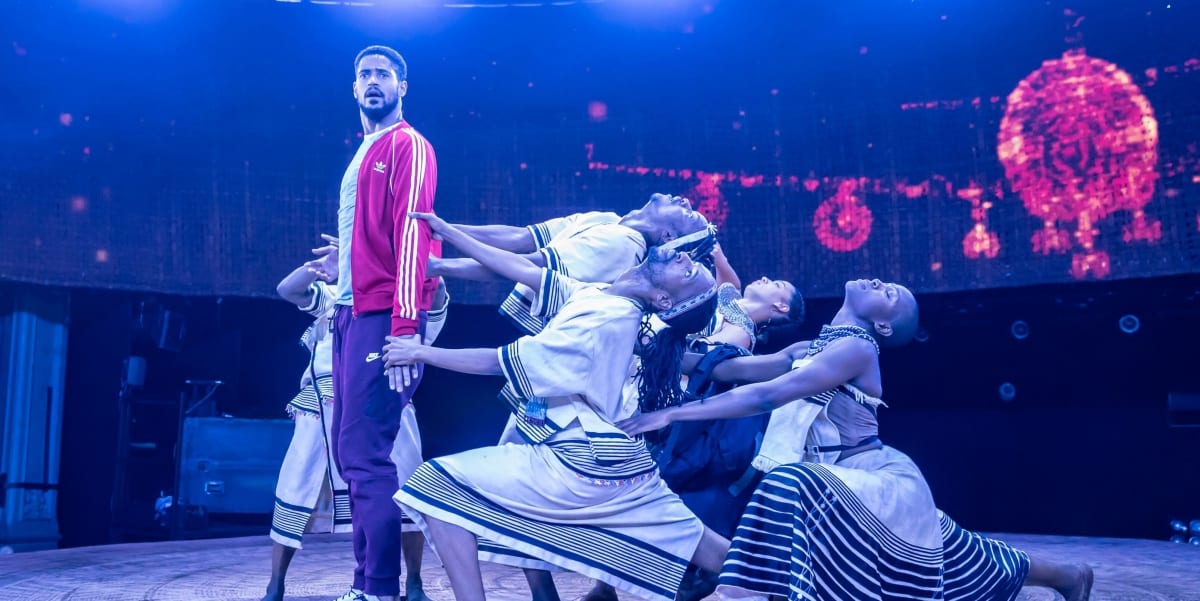Tree is a story of tangled roots, disputed histories and a past that is not as clear cut or understood as you think. And that’s just the story of the making of the play (hence the asterisk). However, the fact that the play’s disputed history has become so public and taken on a life of its own in discussion about how writers are treated should not change how the presented piece of work affects an audience.
The play tells the story of Kaelo’s (Alfred Enoch) trip to his place of conception (but not birth) from London to South Africa to scatter his mother’s ashes. There he meets his maternal white grandmother Elzebe (Sinéad Cusack), her chief of staff and token old wise man Gweki (Patrice Naiambana) and his paternal half-sister, revolutionary and property developer Oftense (Joan Iyola). Through his connection to the land and a series of rhetorical devices, Kaelo sees the history of his parent’s relationship and father’s Lundi’s (Kurt Egyiawan) death that sent his mother escaping to England.
Tree is not always an easy piece of work. It is a 90 minute stand during a very hot summer (and the irony of the cast pointing out the relative coldness of the African winter was not lost on those of us desperately fanning ourselves with our programmes). It also combines both depths and shallows. It highlights areas of contention but does not then always follow them through. The most interesting for me was the clash between the view of the West of Mandela as a secular God and the new generation of young South Africans who are disappointed in the undelivered promise of the ‘Truth and Reconciliation’ process and the corruption of successive ANC governments. This was an area I can see so much potential in, but as this was a story that focused on one family and their history largely during the struggle against Apartheid, it was not covered in the depth I felt it deserved.
In many ways that is both the joy and frustration of Tree. It is a joyous and moving production. It plays with audience participation, having us dance, carry signs and dance dance dance. We help to form the tree at the heart of the production. But the joy and the tears are moments. Vignette’s in the story of Kaelo’s trip, snapshots of his past. They touch us, but briefly and then, like the pulsating electro-afrobeats – we change rhythm and move on.
The cast are superb. It would be hard to pick a standout, but watching Kaolo’s growing understanding of the complexities of a story he once thought simple even as his grandmother softens from the hard and harsh stance she starts with was the emotional core without which the play wouldn’t work. The dance is also superb, at times sensual, at times violent but always a physical manifestation abling matching the mood of the moment.
Like anything held in the round with a standing audience, the staging was at times difficult to follow. But by clever use of 360 degree animation there was always something to see and the music was constantly moving the drama on.
Tree is an entertaining and moving 90 minutes. It is also one that feels somewhat unfinished. The many branches of its story have more tales to tell and I will be interested to see in what direction they are now developed.

